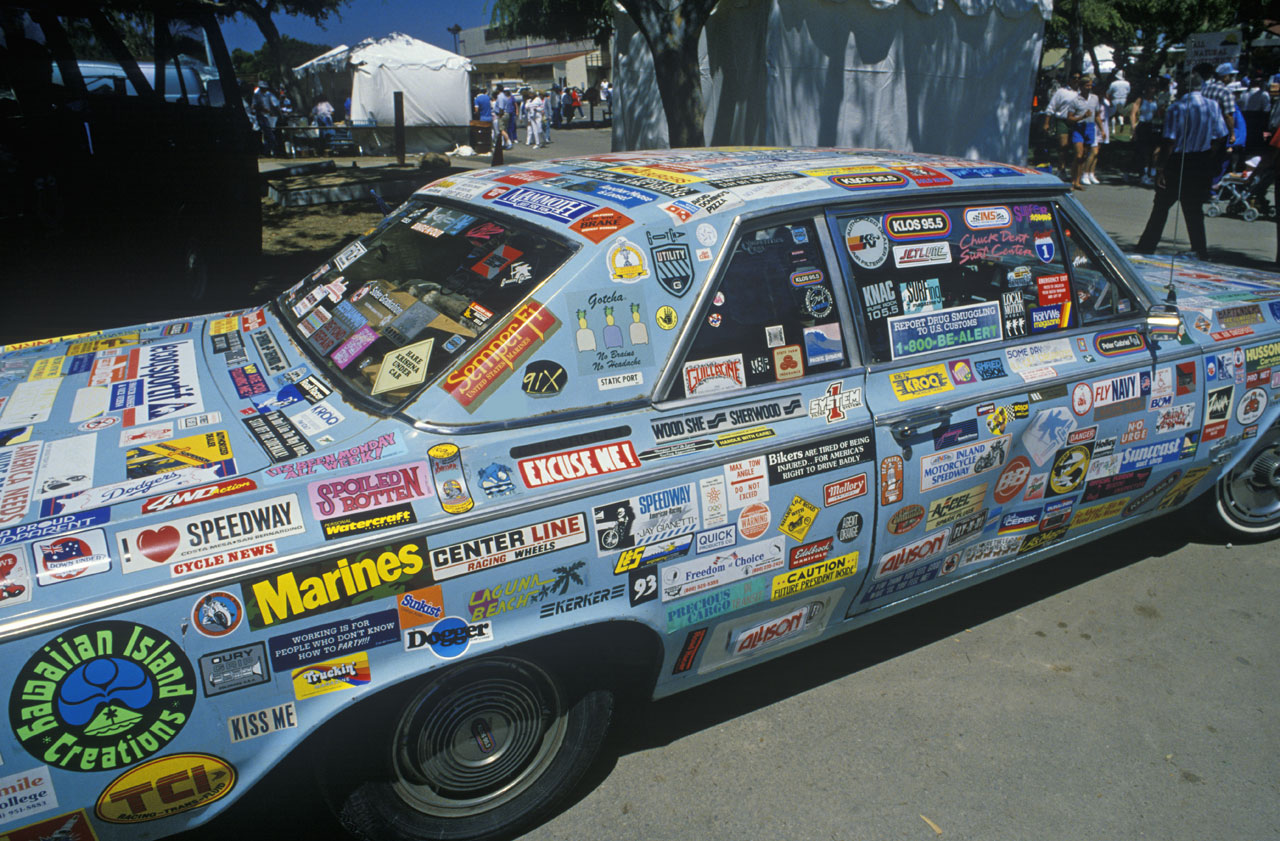I grew up in the days of the bumper sticker. Nowadays, I don’t see as many as I used to. Back then, every car had a bumper sticker, and usually more than one. You could tell a lot about a person by the words spread across their bumper. “If guns are outlawed, only outlaws will have guns” gave you a good clue about where the driver stood.
I guess you could say bumper stickers were the original tweets. Some of them were quite funny: “The weather is beautiful here; wish you were too, beautiful,” and of course the famous “Honk if you love Jesus.” My wife keeps saying the people who honk at me today aren’t telling me they love Jesus, but I like to believe the best.
As bumper stickers have become obsolete, so have many of the ways we used in the past to prepare our children to live in a changing world. I heard speakers and read articles say the average Christian today knows very little theology and cannot give a reasonable defense for the faith. I have to agree. There was a day where almost every child could quote the Ten Commandments, the Twenty-third Psalm, the Lord’s Prayer and the books of the Bible. But no longer do we revere these building blocks for life.
Back when bumper stickers were around, we didn’t need to know how to argue for our faith. We grew up in a society that was predominately wholesome. Almost everyone respected the Bible and the truths it contained. We prayed at school and before sporting events. We pledged our allegiance to the flag with “one nation under God.”
And all of this was just the way it was. There were only two kinds of people in our community: saved people and lost people who looked and acted almost like us. The gap between the lives of the saved and lost seemed small. Most of the time, we referred to them as “unchurched.” We went to church and they didn’t, but outside of that, they held to most of our societal norms.
But our culture has shifted. We’ve become a mobile society, and no longer do we have just those who go to church and those who don’t. The unchurched now include people from a variety of cultural and ethnic groups. And far fewer of our neighbors belong in the “churched” category.
Back in the bumper sticker days, we didn’t have to engage in a multiethnic or multilingual world. We sent missionaries overseas to reach those different from us. But the lost people of today include people who dress differently, talk differently, eat differently and think differently than we do, and we find ourselves unprepared to reach them. They don’t live overseas, but next door, and their numbers are growing.
Families and churches taught the bumper sticker generation what to believe. I grew up learning what my denomination preached, and that was good enough for me. But it’s not good enough for this generation, living in a multiethnic world. We have to teach them the whys. Why should I believe the Bible is the inerrant Word of God? Why should I believe Jesus Christ is the only way to have a relationship with God?
Yes, I can have a conversation with a Muslim or Buddhist about what I believe, and after he tells me what he believes, we can look at each other and say, “So what?” But if I can have a conversation that shares why I believe as I do, I can move him toward the truth.
Moms and dads, pastors and youth pastors, we must begin to rethink the way we train our children for the Kingdom. As I take student after student to the mission field to share their faith, I see evidence of the problem. Most can hardly give a testimony to the saving grace of God, let alone give a defense of their faith. And these students represent the best and brightest from among our churches.
We need to teach them how the Bible, from Genesis to Revelation, is one story: the story of God’s redemption. (On the mission field, we call this Chronological Bible Storying). We need to teach them how to defend their faith against different cultures, ideologies and religions. We need to instill doctrine into their young hearts. We need to teach them that their faith is not a bumper sticker on their life but a banner and sword that they must display and wield.
We can no longer teach our children to “Honk if you love Jesus.” Instead, we must teach them to hunker down and become defenders of the Word.
I hope you’ll join me in this crucial task. But please—don’t honk.
Photo Credit: American Spirit / Shutterstock.com





